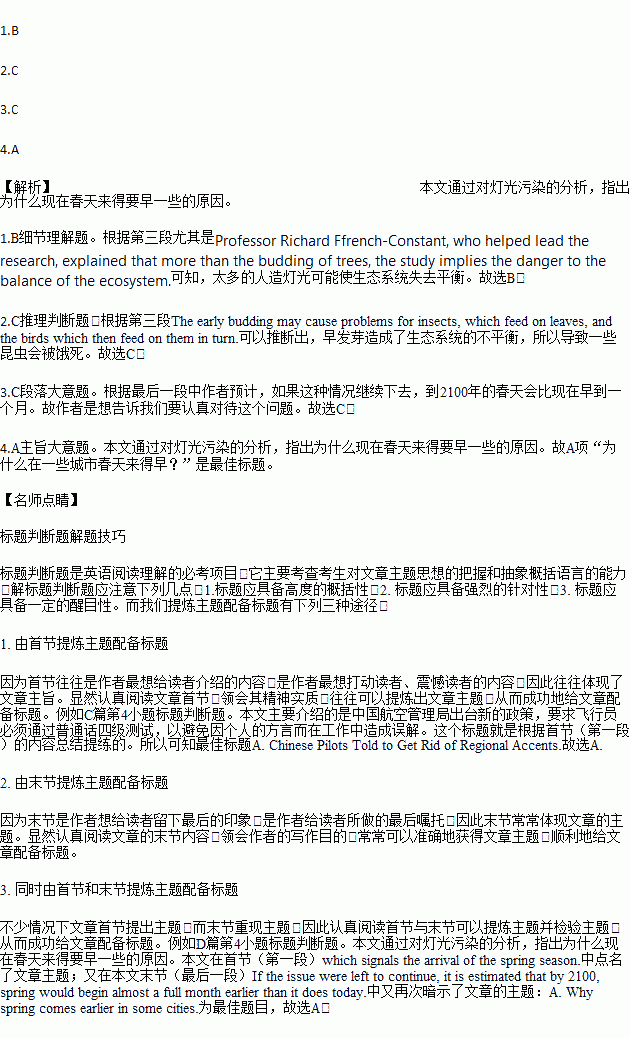题目内容
Do you ever wonder why trees begin to bud (发芽) earlier in some cities? Scientists finally found the answer but it’s not very pleasant. New science suggests a relationship between light pollution and the timing when trees produce buds, which signals the arrival of the spring season.
Light pollution is defined by the Lighting Research Center as the unwanted consequence of outdoor lighting such as street lights. Excessive (过多的) man-made light at night results in disturbed natural cycles, and also prevents the observation of stars and planets at night. But its effect on the environment goes beyond that.
By studying some trees, researchers found out that trees that are more exposed to artificial lighting at night bud up to 7.5 days earlier than those at the natural nighttime setting. And they found out that light had a more significant effect than temperature when the buds came out. The early budding may cause problems for insects, which feed on leaves, and the birds which then feed on them in turn. Professor Richard Ffrench-Constant, who helped lead the research, explained that more than the budding of trees, the study implies the danger to the balance of the ecosystem. “At the moment, caterpillars (毛毛虫) are timed to hatch to make the most of the opportunities to feed on freshly budded leaves, and birds hatch in time to feed on the young caterpillar,” he said.
Migratory (迁徙的) birds are also negatively affected by light pollution. The glare might confuse them and make them lose their flying sense. The phenomenon might explain why some birds accidentally knock into buildings.
Such results stress the need to pursue studies that aim to measure the effect of light pollution. If the issue were left to continue, it is estimated that by 2100, spring would begin almost a full month earlier than it does today.
1.What will happen if there is too much man-made light?
A. People’s eyesight will be damaged.
B. The ecosystem will likely lose its balance.
C. No stars or planets may be observed at night.
D. Animals’ living habits may change suddenly.
2.How does the early budding affect insects or plants?
A. It will cause the rising number of insects.
B. It could lead to trees growing fewer leaves.
C. It may result in some insects going hungry.
D. It might push insects to hatch more slowly.
3.What does the author want to tell us in the last paragraph?
A. The effect of light pollution is destructive.
B. The spring of 2100 will become much longer.
C. Light pollution should be taken seriously.
D. A further study on light pollution is scheduled.
4.What is the suitable title for the passage?
A. Why spring comes earlier in some cities
B. Why light pollution needs to be studied
C. How trees’ early budding takes place
D. How much light is “too much”


